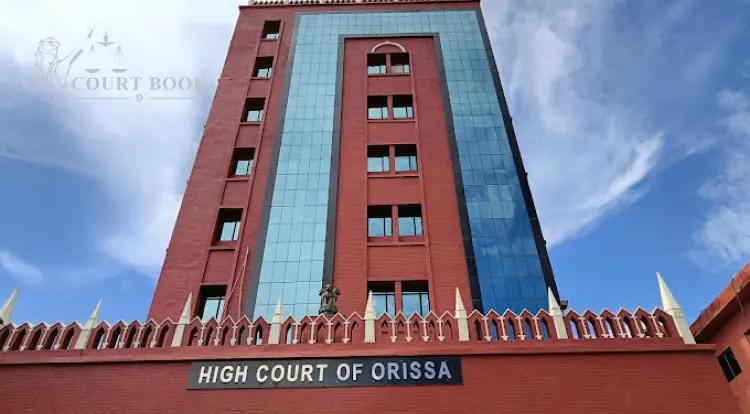The Orissa High Court has taken a significant step to address the delays and hesitations in medical termination of pregnancies (MTP), especially in cases involving rape victims. In a recent judgment, the Court expressed concern over healthcare providers' reluctance to act promptly due to fear of potential criminal liability. To tackle this issue, the Court issued directives for the formulation of a comprehensive Standard Operating Procedure (SOP) to govern MTP cases across the state.
Background of the Case
The case involved a 13-year-old tribal girl suffering from sickle cell anaemia and epilepsy, who was repeatedly raped, resulting in a pregnancy beyond 24 weeks. The girl’s father filed a writ petition seeking permission for the termination of her pregnancy, citing the severe risks to her physical and mental health. The Court, after considering the medical reports and legal provisions, allowed the termination. However, it highlighted the unnecessary delays caused by healthcare providers' fear of legal repercussions.
The Court, led by Dr. Justice Sanjeeb Kumar Panigrahi, extensively referred to the landmark judgments in K.S. Puttaswamy v. Union of India (2017) and X v. Union of India (2023). These cases established that decisions related to abortion fall under the purview of bodily autonomy and reproductive choices, which are protected under Article 21 of the Indian Constitution, guaranteeing the right to life and personal liberty.
The Court noted that the continuation of the pregnancy posed a grave risk to the girl’s life and mental health, especially given her young age and medical conditions. It emphasized that the case squarely fell within the ambit of permissible termination under the Medical Termination of Pregnancy (MTP) Act, 1971.
Read Also:- Orissa High Court: Preliminary Inquiry Under Section 379 BNSS Not Always Required for Filing Complaints
Fear of Criminal Liability and Judicial Intervention
One of the key issues highlighted by the Court was the hesitation among healthcare providers to act promptly in MTP cases, even when no judicial intervention was required. Justice Panigrahi observed:
“Whether driven by fear of reprisal or an abundance of caution in the face of potential criminal liability, many health service providers hesitate to act within the bounds of their professional and legal authority. Instead, they force patients to seek court approval for what is fundamentally a medical decision, one that should be guided by expertise and necessity, not burdened by procedural uncertainty.”
The Court lamented that the delay in the present case arose from the failure to refer the matter to the Medical Board immediately. The Board was convened only after the Court’s intervention, causing unnecessary delays in a situation where time was of the essence.
The Court referred to the Bombay High Court’s judgment in X v. State of Maharashtra (2024), where a similar issue was addressed. In that case, the hospital had directed the petitioner to seek judicial approval instead of referring the matter to the Medical Board. The Bombay High Court had emphasized the need for a comprehensive SOP to streamline the process of MTP.
Additionally, the Court cited a working paper titled “Legal Barriers to Accessing Safe Abortion Services in India” published by the National Law School of India University (NLSIU), Bengaluru. The study highlighted how healthcare providers often insist on judicial authorization for MTP, even in cases where no legal requirement exists. This unnecessary delay causes significant physical and mental agony to women, especially rape victims.
Directions for Formulating SOP
To address these issues, the Orissa High Court issued the following directions to the Health and Family Welfare Department of Odisha for the formulation and implementation of an SOP:
Development of SOP: The department shall develop a comprehensive SOP for MTP, ensuring adherence to the legal framework established in X v. Union of India (2023).
Consultation with Experts: The SOP shall be drafted in consultation with medical experts in obstetrics, gynaecology, and reproductive health, as well as legal professionals well-versed in medical jurisprudence.
Dissemination of SOP: Once finalized, the SOP shall be formally notified and disseminated to all government and private healthcare institutions across the state.
Timely Process: The SOP should ensure a smooth and timely process for MTP, removing avoidable delays and preventing patients from facing unnecessary bureaucracy or legal struggles.
Psychological Support: Recognizing the emotional and psychological impact of such cases, the authorities shall ensure that psychological counselling services are made available to the patient. In cases involving minors, a qualified child psychologist shall be engaged.
Periodic Review: The Health and Family Welfare Department shall periodically review the implementation of the SOP and take necessary corrective measures to address any procedural inefficiency.
Sensitization of Police Stations: Police stations shall be sensitized to immediately involve the District Legal Service Authority or Para-Legal Volunteers to provide legal assistance to rape victims who are pregnant.
Additional Directives: The department may issue any additional guidelines based on their experience and expertise.
The Court granted a strict timeline of six months for the formulation and implementation of the SOP.
Key Takeaways:
- The Orissa High Court has issued directives for the formulation of an SOP to streamline the process of medical termination of pregnancies.
- The Court highlighted the fear of criminal liability among healthcare providers as a major cause of delays in MTP cases.
- The judgment reaffirms the constitutional right to bodily autonomy and reproductive choices under Article 21 of the Indian Constitution.
- The SOP aims to ensure timely medical decisions, especially in cases involving rape victims, and provide psychological support to patients.
Case Title: X v. State of Odisha & Ors.
Case No: W.P.(C) No. 5396 of 2025
Date of Judgment: March 03, 2025
Counsel for the Petitioner: Mr. Arnav Behera & Ms. Ankita Mukherji, Advocates
Counsel for the Respondents: Mr. Saswat Das, Addl. Govt. Advocate















